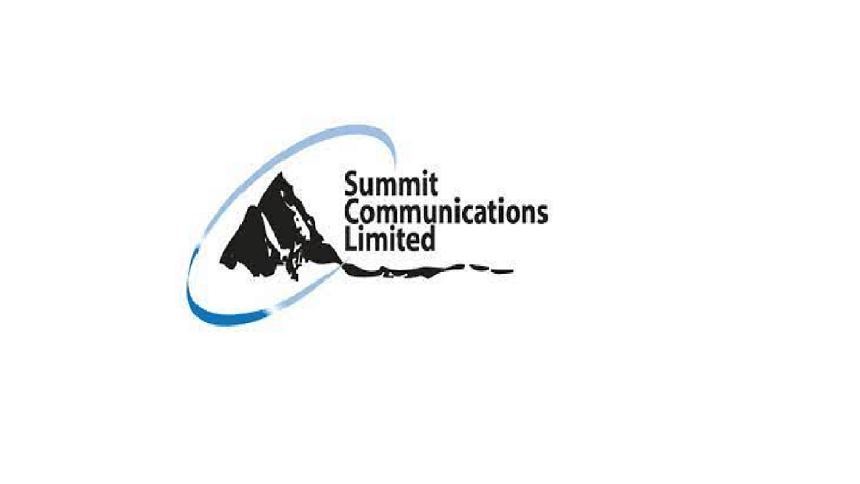
The telecom regulator has sought consent from the government after Summit Communications Ltd applied to use Bangladesh as a transit point to supply bandwidth to the northeastern states of India.
In March last year, the country’s largest fibre optic network infrastructure company requested permission from the Bangladesh Telecommunication Regulatory Commission (BTRC).
The commission is now seeking approval from the telecom ministry since existing laws don’t permit transit of telecommunication services from Bangladesh to operators outside the country.
Summit Communications, an international terrestrial cable (ITC) operator, plans to supply bandwidth from Singapore via the Akhaura border to the northeastern region of India through Bharti Airtel.
The main purpose of the service is to connect Agartala through Akhaura to Bangladesh’s submarine cable landing stations in Cox’s Bazar and Kuakata to reach Singapore. The service is known as an international private leased circuit which will use Bangladeshi soil as a transit route.
It will enable faster internet services in the northeastern states of Tripura, Arunachal Pradesh, Assam, Mizoram, Manipur, Meghalaya, and Nagaland.
Summit Communications made a presentation to this effect to the officials of the BTRC, according to a document of the commission.
It says the states are connected to Singapore through submarine cables via Chennai using India’s domestic fibre optic network.
At present, a distance of about 5,500 kilometres has to be covered to reach the landing station in Chennai from the northeastern part. However, due to the mountainous nature of the region, the maintenance of fibre optic networks and the installation of new networks is relatively difficult, meaning keeping the network secure is relatively a difficult task.
The optical signal latency extends to about 55 milliseconds over the distance to Chennai and goes up to 87 milliseconds to reach Singapore. Covering a distance of about 8,700 kms from North-East India to Singapore through the current network significantly raises the cost of internet service and diminishes the quality of service, according to the document.
In computer networking, latency is the amount of time it takes for a data packet to go from one place to another.
Md Arif Al Islam, managing director of Summit Communications, said this would help export bandwidth to India.
“It will be a good export opportunity if we could sell some bandwidth in the northeastern Indian states. And this export could be done legally with the terrestrial cable licence.”
He could not say immediately how much bandwidth could be exported.
When asked if Summit will deliver Bangladesh Submarine Cables PLC’s (BSCPLC) bandwidth that the state-run agency imports from Singapore, Islam said Summit could provide both BSCPLC’s bandwidth and Indian bandwidth, depending on the market demand.
In Bangladesh, more than half of the bandwidth comes from India through ITC operators which import bandwidth across land borders.
“A great portion of Bangladesh’s bandwidth demand is met by Indian operators. So, exporting bandwidth to India is not a bad idea,” said a top executive of a local internet infrastructure provider.
“Bangladesh also exports bandwidth through BSCPLC. But, under current rules, an ITC operator can’t do it.”
He said the biggest concern for Bangladesh is that the bandwidth it imports from India could ultimately end up in India if the opportunity is extended to a private operator.
“And this will harm BSCPLC’s bandwidth export to India.”
Currently, BSCPLC, through another state-run firm Bangladesh Telecommunications Company Limited, exports 20Gbps bandwidth to North-East India.
“We have the capacity to export more bandwidth to India,” said an executive of BSCPLC, seeking anonymity.
Since there is no legal provision that permits such the transit of bandwidth, BTRC’s Engineering and Operations Division is assessing Summit’s proposal and has sent a note to the commission’s legal and licencing division seeking legal opinion.
In the document, the BTRC said the ITC guidelines show that this type of licence has been introduced to provide services to the customers of Bangladesh and connect the country internationally.
No provisions regarding service to customers outside Bangladesh or the use of Bangladesh as a transit point have been cited, it said, adding that neither the BTRC or the government has so far granted any such approval.
It, however, pointed out that through Summit, there is an opportunity for Bangladesh to earn foreign exchanges by selling bandwidth in neighbouring countries. Therefore, a proposal can be sent to the government seeking a decision, the legal and license division said.
In December 2022, Bharti Airtel applied to Bangladesh’s foreign ministry regarding the same issue and the ministry asked the telecom division to take the next step. However, the issue did not see progress.
Md Mohiuddin Ahmed, chairman of the BTRC, told The Daily Star recently that no final decision regarding Summit Communications’ proposal has been taken.
State Minister for Telecom Zunaid Ahmed Palak and Telecom Secretary Abu Hena Morshed Zaman couldn’t be reached for comments.
Telecom experts and industry people, however, say the move not only undermined the current legal framework but also weakened the bandwidth export potential of Bangladesh to North-East India and beyond.
“It goes against the national interest of Bangladesh. Public infrastructure, the optical fibre, has been built with public funds and rented out to a local private company. It must not be selectively given away to a foreign operator,” Abu Saeed Khan, a senior policy fellow at LIRNEasia, a Colombo-based think-tank.
“Such permissions must be endorsed by the entire cabinet, not by the BTRC or the telecom ministry.”
Daily Star









